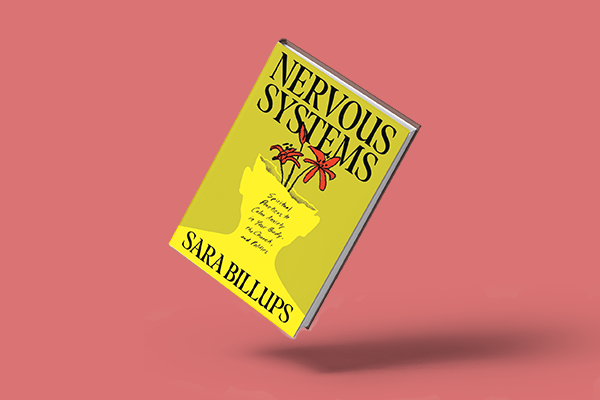IF YOU'VE SPENT some time in church, you’ve likely heard a sermon on Jesus’ instruction, “Do not worry.” But how do we actually do that? Can we actually do that? In Nervous Systems, author Sara Billups grapples with “the dissonance between the head reading ‘do not worry’ and the heart worrying.” And while Billups seeks to align her head and heart, she does not claim to have found a spirituality that magically dispels anxiety. “My anxiety did not dissipate,” she writes. “Instead, God met me repeatedly in its very presence.”
With a mix of memoir and critical reflection, Billups explores how God meets us wherever anxiety dwells—in the human body, the church body, and the body politic. Billups, who has a doctor of ministry in the “sacred art of writing,” relies on both research and personal experience to guide her. She weaves in her exploration of Ignatian spiritual practices as a tangible way to seek God’s steadfast presence in anxious times. Reflecting with candor on her anxieties around health, aging parents, motherhood, church, and politics, she captures the nuance that Christian discussions of anxiety—the ones that might boil down to “just pray more” or “trust God more”—often miss.
I appreciate Billups’ emphasis on being “faithful and present” in our lives, relationships, faith communities, and world. For her, fidelity and stability are spiritual practices. In a time when “our anxiety manifests acutely in political polarization,” as Billups writes, we need a spirituality that grounds us. We need a faith that reduces our defensiveness and pushes us to engage with diverse communities out of a desire to love, rather than a need to control. “Political anxiety is stoked,” Billups writes, “when we are not well-formed and spiritually mature.”
Read the Full Article

